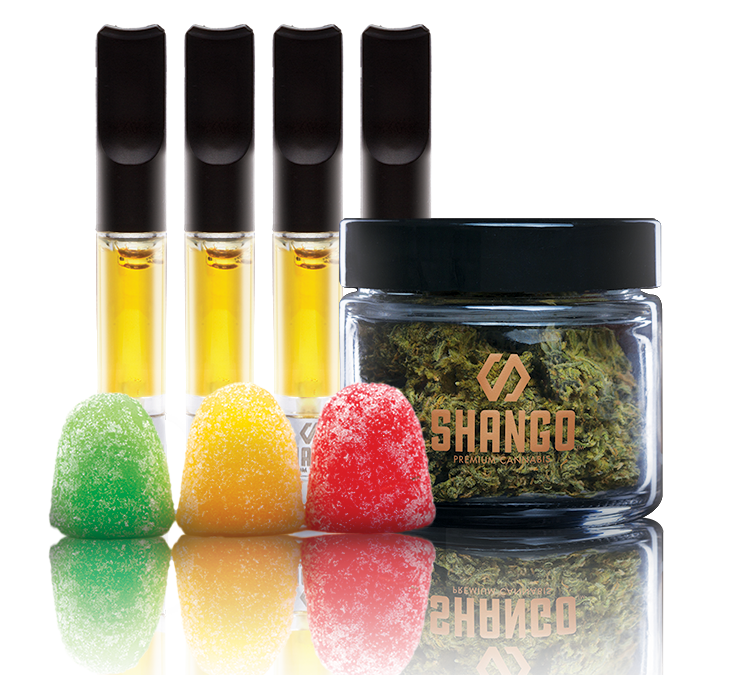A brand new industry will start operating in Oregon on the first day of October — legal recreational marijuana sales to adults.
Although approved by the voters at the 2014 General Election, recreational marijuana sales are still controversial. Marijuana is still illegal under federal law, and Oregon is one of only four states to legalize it for recreational use. The Gresham City Council recently voted to ban it.
But last Wednesday morning, at the Portland Business Alliance’s monthly breakfast forum, selling recreational marijuana sounded much the same as selling craft beer and distilled spirits. It featured a panel including representatives from all three industries, something that would have been inconceivable before the election.
As PBA board chair Mitchell Hornecker put it, they are all just examples of “unique entrepreneurship” now.
“And we want them to stay around,” Hornecker, executive vice president of the Howard S. Wright construction company and current president of the PBA Board of Directors, told the crowd at the Sentinel Hotel.
Although the panel was presentation was titled “Vice City,” the panelists talked mostly about the common day-to-day business challenges they all face, high taxes, excessive government regulations, the need to creative effective marketing strategies, and the difficulty of finding qualified employees.
“Some applicants think they can just sit around and smoke all day long, and that’s not the way we run our business,” said Morgan McKee, co-founder of Shango Premium Cannibis, a company which owns three legal medical marijuana dispensaries in the Portland area, where recreational sales can begin in about two weeks.
The other two panelist were Erik Martin, co-owner of the local Aria Gin distillery, and Andy Thomas, CEO of the Craft Brew Alliance, which owns Widmer Brothers Brewing, Red Hook, Omission Beer, and the Kona Brewing Company. Thomas noted that, like legal marijuana, alcohol was once illegal in America and small producers struggled to enter the market after Prohibition was repealed.
“Home brewing was illegal until 1979, when President Jimmy Carter legalized it. But it took five more years before Kurt and Rob Widmer helped create the craft beer movement here in the Pacific Northwest,” said Thomas, noting that Portland is now noted for its craft breweries, which attract tourists and boosts the local economy.
Martin noted that state laws and rules are still being tweaked to help craft distilleries flourish. For example, the Oregon Liquor Control Commission legalized such sales along with beer and wine at farmers markets in 2013.
“We’re still working to get parity with beer and wine,” said Martin, who noted that doing business in other states posed even more challenges.
“The rules are totally different from state to state. There’s no uniformity,” said Martin, whose company sells its gin in 10 OLCC stores and 10 other states.
Both Thomas and Martin said that attracting a loyal following is key to the success of their companies.
“If I say, I’m with the Craft Brewing Alliance, no one knows who that is. But if I say I’m with the Widmer Brothers, that’s different — especially here in Portland,” said Thomas.
McKeen agrees, noting her company has hired a Las Vegas marketing firm to help build a repeat customer base.
Federal regulations are perhaps bigger obstacle to the growth of all three industries, however. But two Oregon lawmakers are trying to change that.
Thomas and Martin discussed how federal excise taxes on alcohol are higher for smaller producers than larger ones, creating a competitive disadvantage against bigger brewers and distillers. They praised Oregon U.S. Sen. Ron Wyden for introducing the Craft Beverage Modernization and Tax Reform Act in June of this year to level the playing field.
“Wyden deserves a lot of credit for bring some Pacfiic Northwest common sense to the picture,” said Thomas.
When it comes to marijuana, the federal Controlled Substances Act classifies marijauna as a Schedule 1 drug, meaning it is considered among the most dangerous.
That’s still the case, despite the fact that nearly half the states have legalized some form of medical marijuana. Because of that, most banks to refuse to work with legal marijuana businesses.
According to McKee, that means her company cannot open checking accounts or accept credit cars for sales.
Oregon Third District Congressman Earl Blumenauer is one of the most vocal advocates for the U.S. government to legalize marijuana. He has introduced the Marijuana Tax Equity Act to end the federal prohibition on marijuana and tax it.
“There’s so much tax money to be collected on marijuana sales, I can’t believe it hasn’t already happened,” said McKee. Estimates range from around $10 million to nearly $40 million in annual state tax collections.
But change is slow — even in Oregon. The ballot measure approved Oregon voters last year authorized the OLCC to regulate recreational marijuana sales.
It is still adopt the rules and is only temporarily allowing recreational marijuana to be sold to anyone over 21 at medical marijuana dispensaries on Oct. 1. Application for recreational retail stores will be accepted on Jan. 4, 2016, but the OLCC has yet to decide whether they will eventually have to be separate from the dispensaries.


